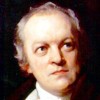Poetry demands a man with special gift for it, or else one with a touch of madness in him; the former can easily assume the required mood, and the latter may be actually beside himself with emotion.
[διὸ εὐφυοῦς ἡ ποιητική ἐστιν ἢ μανικοῦ: τούτων γὰρ οἱ μὲν εὔπλαστοι οἱ δὲ ἐκστατικοί εἰσιν.]
Aristotle (384-322 BC) Greek philosopher
Poetics [Περὶ ποιητικῆς, De Poetica], ch. 17 / 1455a.33 (c. 335 BC) [tr. Bywater (1909)]
(Source)
Original Greek. Fyfe (below) notes μανικός to mean "genius to madness near allied," and adds "Plato held that the only excuse for a poet was that he couldn't help it." A possible source of Seneca's "touch of madness" attribution to Aristotle. Alternate translations:
Poetry implies either a happy gift of nature or a strain of madness. In the one case a man can take the mould of any character; in the other, he is lifted out of his proper self.
[tr. Butcher (1895)]
Poetry is the work for the finely constituted or the hysterical; for the hysterical are impressionable, whereas the finely constituted are liable to outbursts.
[tr. Margoliouth (1911); whiles this seems backward, Margoliouth further explains in his footnote.]
Poetry needs either a sympathetic nature or a madman, the former being impressionable and the latter inspired.
[tr. Fyfe (1932)]
Hence the poetic art belongs either to a naturally gifted person or an insane one, since those of the former sort are easily adaptable and the latter are out of their senses.
[tr. Sachs (2006)]
In order to write tragic poetry, you must be either a genius who can adapt himself to anything, or a madman who lets himself get carried away.
[tr. Kenny (2013)]
Quotations about:
madness
Note not all quotations have been tagged, so Search may find additional quotes on this topic.
Whether we believe the Greek poet, “it is sometimes even pleasant to be mad”, or Plato, “he who is master of himself has knocked in vain at the doors of poetry”; or Aristotle, “no great genius was without a mixture of insanity”; the mind cannot express anything lofty and above the ordinary unless inspired. When it despises the common and the customary, and with sacred inspiration rises higher, then at length it sings something grander than that which can come from mortal lips. It cannot attain anything sublime and lofty so long as it is sane: it must depart from the customary, swing itself aloft, take the bit in its teeth, carry away its rider and bear him to a height whither he would have feared to ascend alone.
[Nam sive Graeco poetae credimus ‘aliquando et insanire iucundum est,’ sive Platoni ‘frustra poeticas fores compos sui pepulit,’ sive Aristoteli ‘nullum magnum ingenium sine mixtura dementiae fuit’: non potest grande aliquid et super ceteros loqui nisi mota mens. Cum vulgaria et solita contempsit instinctuque sacro surrexit excelsior, tunc demum aliquid cecinit grandius ore mortali. Non potest sublime quicquam et in arduo positum contingere, quam diu apud se est; desciscat oportet a solito et efferatur et mordeat frenos et rectorem rapiat suum eoque ferat, quo per se timuisset escendere.]
Seneca the Younger (c. 4 BC-AD 65) Roman statesman, philosopher, playwright [Lucius Annaeus Seneca]
Moral Essays, “On Tranquility of Mind [De Tranquillitate Animi],” 17.10 [tr. Langsdorf (1900)]
(Source)
A man who never alters his opinion is like standing water, and breeds reptiles of the mind.
William Blake (1757-1827) English poet, mystic, artist
The Marriage of Heaven and Hell, “A Memorable Fancy” (1790)
(Source)
All are lunatics, but he who can analyze his delusion is called a philosopher.
Ambrose Bierce (1842-1914?) American writer and journalist
The Collected Works of Ambrose Bierce, Vol. 8, “Epigrams” (1911)
(Source)
Anger is momentary madness, so control your passion or it will control you.
[Ira furor brevis est: animum rege: qui nisi paret imperat.]
THESEUS: Lovers and madmen have seething brains,
Such shaping fantasies, that apprehend
More than cool reason ever comprehends.William Shakespeare (1564-1616) English dramatist and poet
Midsummer Night’s Dream, Act 5, sc. 1, l. 4 (5.1.4-6) (1605)
(Source)
POLONIUS: Though this be madness, yet there is method in’t.
William Shakespeare (1564-1616) English dramatist and poet
Hamlet, Act 2, sc. 2, l. 223 (2.2.223) (c. 1600)
(Source)
There is no great genius without a touch of madness.
[Nullum magnum ingenium sine mixtura dementiae fuit.]
Aristotle (384-322 BC) Greek philosopher
(Attributed)
Attributed to Aristotle in Seneca the Younger, "On Tranquility of Mind [De Tranquillitate Animi]" (17.10) (c. AD 60). (Source (Latin)).
Alternate translations:
This quotation as such is not found in surviving Aristotle. It may either represent something from Aristotle that has been lost since Seneca, or else Seneca fabricating a quote, quoting something spurious, or paraphrasing something Aristotle did write, e.g., his comments about madness/melancholy and poets/prominent talents (here and here). See also the Pseudo-Aristotle, Problemata, Book 30, ch. 1:
- "There is no great genius without a mixture of madness." [Example (1851)]
- "No great genius was without a mixture of insanity." [tr. Langsdorf (1900)]
- "No great genius has ever been without a touch of insanity." [tr. Stewart (1900), "On Peace of Mind"]
- "No excellent soul is exempt from a mixture of madness." [Example (1906)]
- "No great genius has ever existed without some touch of madness." [tr. Basore (1932)]
- "No great genius has ever existed without a dash of lunacy." [tr. Davie (2007)]
- "There was never any great genius without a tincture of insanity." [tr. @sentantiq (2018)]
- "There was never a genius without a tincture of madness."
- "No great mind has ever existed without a touch of madness."
Why is it that all those who have become eminent in philosophy or politics or poetry or the arts are clearly of an atrabilious temperament, and some of them to such an extent as to be affected by diseases caused by black bile, as is said to have happened to Heracles among the heroes? [tr. Forster (1927)]











